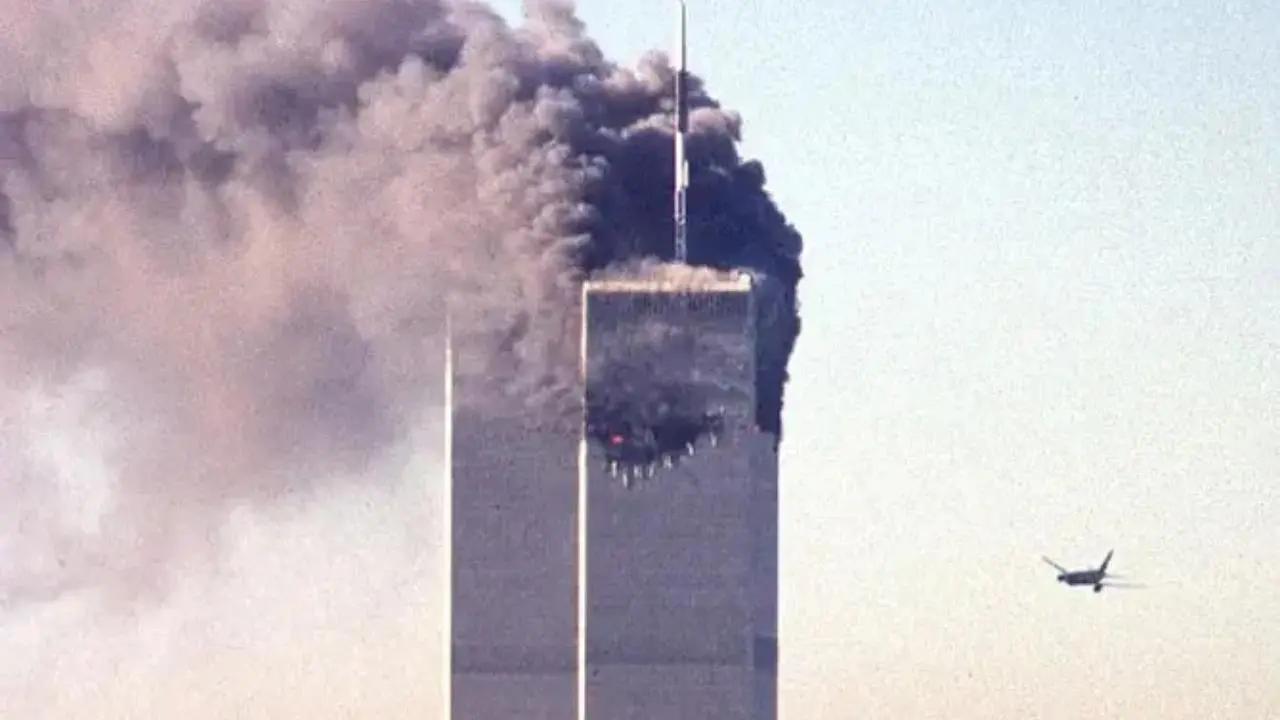On September 11, 2001, 19 terrorists affiliated with al-Qaeda hijacked four US commercial aeroplanes to use them as weapons against symbolic American landmarks

File Photo. Pic/AFP
The September 11, 2001, terrorist attacks were one of the most devastating events in US history. Coordinated by the extremist group al-Qaeda, the attacks claimed thousands of lives and reshaped global security and politics. Here's an overview of the essential facts about the US 9/11 attacks that everyone should know.
ADVERTISEMENT
The Attacks: A Coordinated Plot
On September 11, 2001, 19 terrorists affiliated with al-Qaeda hijacked four US commercial aeroplanes to use them as weapons against symbolic American landmarks. Four planes were involved:
- American Airlines Flight 11 struck the North Tower of the World Trade Center in New York City at 8:46 AM.
- United Airlines Flight 175 hit the South Tower of the World Trade Center at 9:03 AM.
- American Airlines Flight 77 crashed into the Pentagon at 9:37 AM.
United Airlines Flight 93, after passengers fought back against the hijackers, crashed into a field in Shanksville, Pennsylvania, at 10:03 AM, preventing it from reaching its intended target, believed to be either the White House or the US Capitol.
Death Toll and Casualties
The US 9/11 attacks resulted in the deaths of 2,977 people, including passengers, crew members, first responders, and civilians. Thousands more were injured. The fatalities occurred in New York, Washington, D.C., and Pennsylvania.
World Trade Center: 2,753 people were killed in the collapse of the Twin Towers.
Pentagon: 184 people died in the attack on the Pentagon.
Flight 93: 40 passengers and crew members were killed when the plane crashed.
In addition to the immediate death toll, many first responders and residents near the World Trade Center have since suffered from illnesses related to toxic exposure at Ground Zero.
Who Was Responsible?
The US 9/11 attacks were orchestrated by the Islamist extremist group al-Qaeda, led by Osama bin Laden. The hijackers were trained for months in how to pilot commercial jets and how to carry out their deadly mission. They exploited weaknesses in airport security, using box cutters and knives to take control of the planes.
Immediate Aftermath
The immediate aftermath of the US 9/11 attacks was marked by widespread panic, grief, and uncertainty. Both the North and South Towers of the World Trade Center collapsed within hours, causing catastrophic damage and leaving Lower Manhattan covered in ash and debris.
Rescue and recovery efforts continued for weeks, with thousands of first responders and volunteers searching for survivors. The cleanup at Ground Zero lasted until May 2002, during which time New York City, and the nation as a whole, mourned those lost.
Security and Policy Changes
9/11 led to a dramatic shift in US national security and foreign policy, including the launch of the “War on Terror” and increased counterterrorism measures:
Creation of the Department of Homeland Security (DHS): Established in 2002, the DHS was created to oversee national efforts to protect the U.S. from terrorism, streamline intelligence, and improve disaster preparedness.
The USA PATRIOT Act: Enacted shortly after 9/11, the PATRIOT Act expanded the US government's surveillance and investigative powers, allowing broader access to communication data, financial records, and foreign intelligence.
Airport Security: The attacks led to the establishment of the Transportation Security Administration (TSA), which implemented stringent airport screening procedures, including banning certain items on planes and enhancing passenger and luggage checks.
The Hunt for Osama bin Laden
Osama bin Laden, the mastermind of the US 9/11 attacks, became the most wanted man in the world after the attacks. After nearly a decade of intelligence gathering and military efforts, US Navy SEALs located and killed bin Laden in a raid on his compound in Abbottabad, Pakistan, on May 2, 2011. His death was considered a significant victory in the War on Terror, though al-Qaeda and other extremist groups remain active globally.
Memorials and Remembrance
Several memorials have been established to honour the victims of the US 9/11 attacks:
National September 11 Memorial & Museum: Located at the World Trade Center site in New York City, the memorial features two large reflecting pools where the Twin Towers once stood, surrounded by the names of those who died in the attacks.
Pentagon Memorial: An outdoor memorial in Arlington, Virginia, honours the 184 people who lost their lives in the Pentagon attack.
Flight 93 National Memorial: This memorial in Shanksville, Pennsylvania, commemorates the heroism of the passengers and crew of United Airlines Flight 93.
Each year on September 11, memorial services are held across the US to remember the victims, honour the first responders, and reflect on the profound impact of the US 9/11 attacks.
The US 9/11 attacks not only changed the United States but reshaped global politics, security policies, and the fight against terrorism. The memory of the nearly 3,000 lives lost and the bravery of first responders, survivors, and everyday citizens continues to serve as a reminder of the resilience and unity that followed one of the darkest days in modern history.
 Subscribe today by clicking the link and stay updated with the latest news!" Click here!
Subscribe today by clicking the link and stay updated with the latest news!" Click here!







